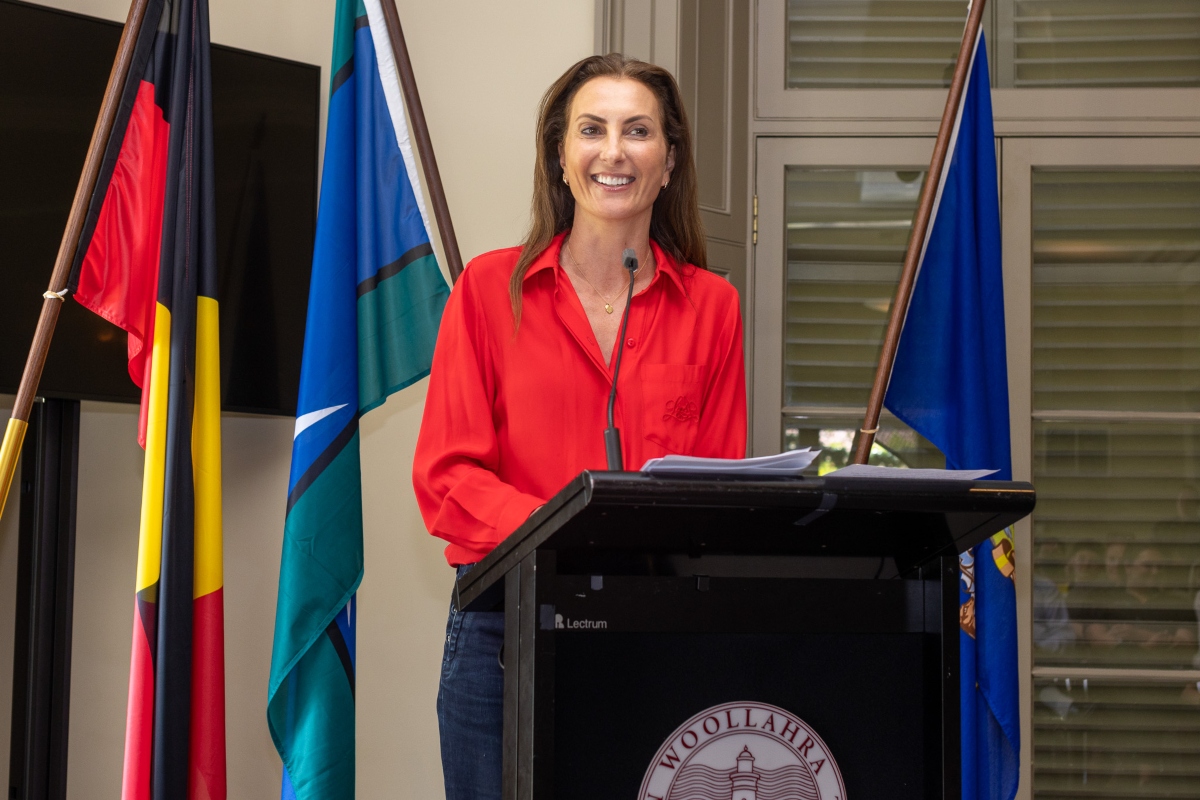Woollahra Council stoush over Emergency Services Levy

By LAUREN FROST.
A stoush over council funding has embroiled the NSW Minister for Local Government, MP Ron Hoenig, and Woollahra Council. At the last Woollahra Council meeting, the local council committed to confrontational correspondence with the Minister.
Woollahra Mayor Susan Wynne will write MP Ron Hoenig regarding concerns over the Minister’s comments about the financial sustainability of councils.
The motion, which was put forward in the Woollhara council meeting late last month, was resolved unanimously. It called for Mayor Wynne to invite the Minister to meet with Woollahra Council so that he could better understand the steps taken by Council to address financial sustainability, and to discuss the financial challenges faced by local government.
The recently announced increase in the emergency services levy (ESL) which, for the last several years was subsidised by the state government, brought on the urgency of such a meeting.
MP Ron Hoenig said in NSW Parliament on 30 May, “the issue that seems to currently have the attention of local government is the universal complaint about paying the emergency services levy.”
The Minister went on to say, “Mayors from a variety of councils have been coming to see me and writing to me, talking about the financial sustainability of local government.”
“I point out to them that financial sustainability is not about rate increases; it is about getting their own finances in order. It is about monitoring their own finances and making sure that they are accountable for their own expenses. They are democratically elected to do so,” he continued.
“Judging by the Auditor-General’s report, local government has got a long way to go to fix its own financial accountability.”
Minister’s comments disappoint councils
Mayor Wynne called these comments “disappointing”, especially, she said, “since the Minister was a Mayor in local government for approximately 31 years prior to being elected to Parliament a little over 10 years ago.”
“Woollahra Council (no doubt like the broader local government sector) wants to have a strong working relationship with the new NSW government,” Mayor Wynne continued at the Woollahra Council meeting.
“However, attacks such as this by the Minister for Local Government on Councils will not do a lot to foster such a relationship,” she said.
Mayor Wynne told City Hub that Woollahra Council, “are calling on the NSW Government for a fair, transparent and financially sustainable funding model for the state’s emergency services budget that does not financially disadvantage councils.”
“For Woollahra Council, the ESL has increased by $621,605 for 2023/24, bringing our total Council contribution of $2,591,907 in 2022/23 to $3,213,512 in 2023/24,” she continued.
“When Council’s contribution was increased in 2019, we were given a state government subsidy to offset the financial burden, which has now been removed. Its removal is a further impact on Council’s budget of $431,384, bringing the total impact to Council for 2023-24 of $1,052,989.”
“Legislative requirements have not changed”
However, a spokesperson for the Minister for the Local Government told City Hub that “local government contributions to the cost of emergency services date back to the 1800s.”
“The contributions made by local councils to emergency services are determined through legislative requirements. These legislative requirements have not changed,” they continued.
“The increase in the ESL was approved by the former government. Our Government did not have the time to engage with the process without jeopardising the funding arrangements for emergency services.”
“The former Government’s ad hoc ESL subsidy was never budgeted for by the previous Government and there was no money set aside for a subsidy in 2023-24.”
However, the spokesperson assured City Hub that “the NSW Government is committed to ensuring that emergency services are delivered efficiently and within budget now in order to minimise impact on councils and households in the years ahead.”
They went on to say that, “The NSW Government recognises that both councils and ratepayers are facing increased cost pressures and is focussed on ensuring the sustainability of the local government sector.”
“The NSW Government has committed to implementing a review of financial modelling for councils, with a lens on the increasing cost burdens on residents,” the spokesperson said.
“IPART will be conducting further consultation with the local government sector before releasing its final report on the rate peg methodology.”
“We will await that final report to determine the best approach to a review.”
In the meantime, however, it seems councils across NSW will be left scrounging for funds to accommodate the increase in the ESL.
Mayor Wynne told City Hub, “As a Council, we have worked incredibly hard and we have made difficult decisions in the last 18 months to restore our financial position so we can continue to deliver a high standard of service, address our deficit, and focus on our long-term financial sustainability.”
“If the NSW Government’s decision is not reversed our ability to deliver our planned infrastructure projects and maintain our services may be impacted.”
“The benefits of our budget repair work are jeopardised by the increased level of cost-shifting from the state,” she said.
Mayor Wynne is calling on the NSW Government to restore the ESL subsidy, urgently introduce legislation to divorce the ESL from the current rate peg and develop a more transparent, financially sustainable model for funding emergency services in consultation with local government.
Unfortunately for local governments, financial sustainability remains tenuous until the state government takes further action.
“If the NSW Government’s decision is not reversed, our ability to deliver our planned infrastructure projects and maintain our services may be impacted,” Mayor Wynne told City Hub.
“The benefits of our budget repair work are jeopardised by the increased level of cost-shifting from the state.”
May 10, 2024 |
City Hub Contributor
May 7, 2024 |
Grace Johnson
April 3, 2024 |
Jasmine Simmons
February 16, 2024 |
Rita Bratovich
February 16, 2024 |
Grace Johnson
February 15, 2024 |
Grace Johnson


